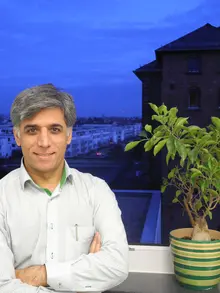Growing up in Iran. Developing Competence Assessment Instruments for "Non-Cognitive" Constructs

PI: Dr. Ebrahim Talaee
Duration: 11/2014-09/2017
Project Description:
The project “Growing up in Iran: Longitudinal Study of Iranian Children (LSIC)” aims to follow a group of nearly 800 Iranian children from age 4 to 12 (pre-school to the end of primary school). The sample comes from two groups of children in five provinces of the country: those who attended pre-school and those who did not. The key aims of the project are:
- Chart development of children with different backgrounds and environments from age 4 to 12
- Identify and examine key factors affecting different aspects of children’s development and whether these factor promote or hinder positive development
- Investigate impact of early experiences on later development
- Map dimensions of variation in children’s lives
LISC adopts an ecological perspective to child development to study different aspects of children’s development over a course of 8 years. Therefore the following two strategies were followed:
- Use of a range of assessment tools to collect data on each child’s different aspects of development: cognitive (such as language, scientific and mathematical thinking), social (such as agency, self-control), learning to learn (active learning), moral, spiritual, cultural, physical and health, artistic, social, technological, environmental, and financial.
- Use a range of evaluation tools to evaluate the environments which might have an influence on children’s development (such as home, early centers, schools)
Therefore, the team requires a range of assessment instruments to measure all these areas. Some of the measuring instruments were taken from the already established pool of measurement in the education and social science arena such as ECERS-R to assess the quality of pre-schools or CLASS to assess the quality of primary schools, TOLD, Wechsler etc. However, the most challenging part is developing measurement instruments for other areas which are less directly observable or cannot be captured by a single test or questionnaire. These areas require more time to be in the field and observe the occurrence of the intended character.
This is the part of the study which is now being worked on in association with scholars at University of Bamberg. In particular these are the areas of focus:
- Instrument to measure children’s cultural development over years (the conceptualization of “culturally developed person”, its constructs and elements, how we can assess that over time with young children etc)
- Instrument to measure children’s financial literacy and development over years (the conceptualization of “financially literate person”, its constructs and elements, how we can assess that over time with young children etc)
- Instrument to measure children’s moral development over years (the conceptualization of “morally developed person”, its constructs and elements, how we can assess that over time with young children etc)
- Instrument to measure children’s spiritual development over years (the conceptualization of “spiritually developed person”, its constructs and elements, how we can assess that over time with young children etc)
- Instrument to measure children’s mathematical/scientific thinking over years (the conceptualization of a mathematical/scientific thinker”, its constructs and elements, how we can assess that over time with young children etc)
- Instrument to measure children’s information/technological literacy over years (the conceptualization of “informational/technologically literate person”, its constructs and elements, how we can assess that over time with young children etc)
Same scheme exists for other areas of child’s development and the influencing environments.